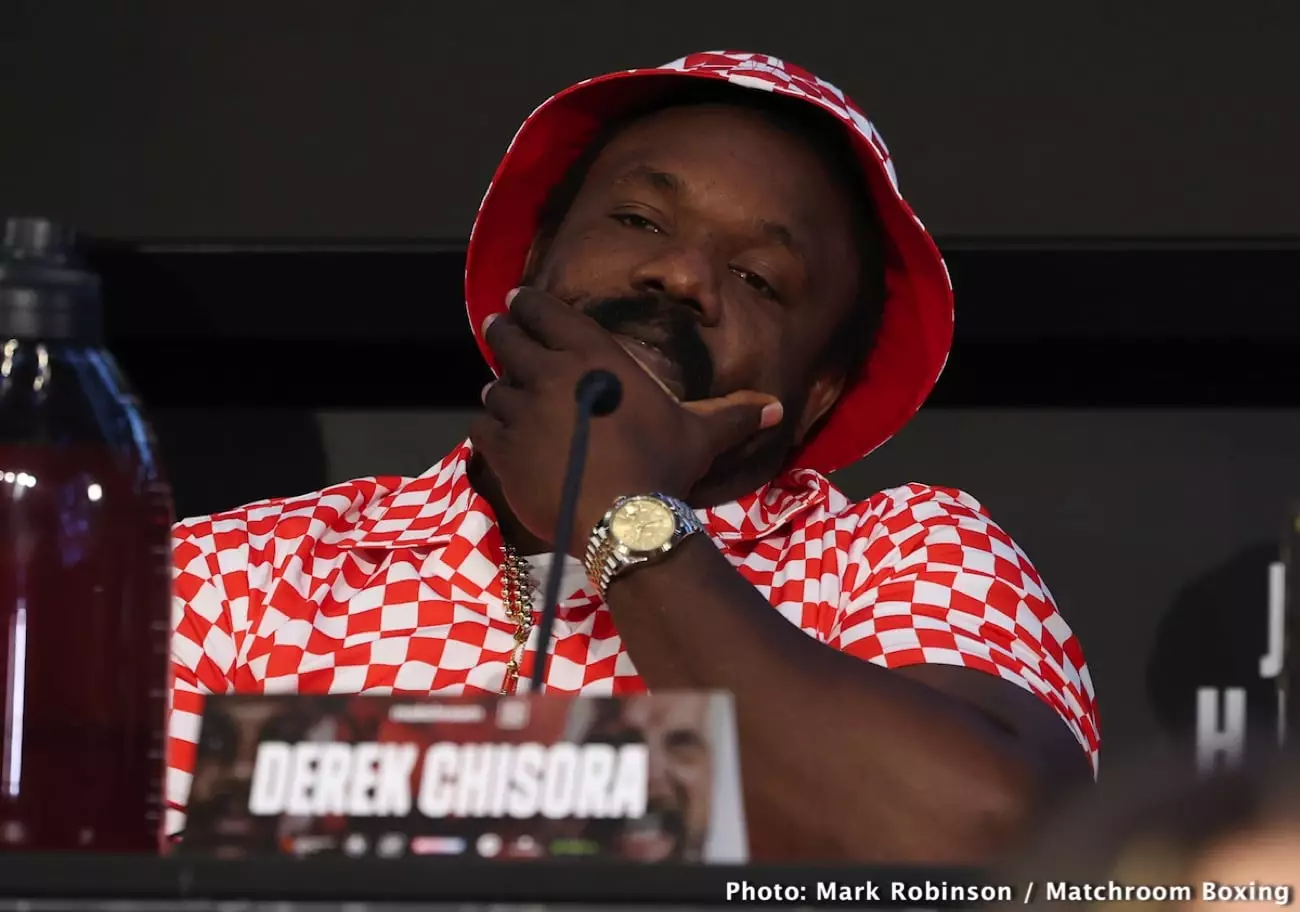In the world of boxing, certain fights are hyped beyond reason, driven more by ego and legacy than genuine competitive desire. The potential third clash between Tyson Fury and Oleksandr Usyk exemplifies this phenomenon. Fury, the towering charismatic champion, recently announced his intent to face Usyk for a third time—despite ample evidence suggesting that such a bout would neither serve the sport nor offer new entertainment for fans. From a historical perspective, rematches are justified if they provide a different dynamic or resolve unresolved questions. Yet, in this case, both fighters seem to agree that the outcome is predictable, rendering the fight unnecessary. It raises questions: Why chase an encounter that has already seen the same predictable conclusion twice over?
Chisora’s Blunt Critique and the Reality of Boxing Politics
Derek Chisora’s outspoken rejection of a third Fury-Usyk fight underscores a broader issue within heavyweight boxing—demanding respect for fighters who earn their shot based on merit rather than politics. Chisora, known for his no-nonsense attitude, dismisses the idea of Usyk and Fury battling again, arguing that fans and the fighters themselves have little interest. Chisora’s stance is rooted in a hard truth: boxing often prioritizes marquee matchups over meaningful competition. Fury’s recent claims—that he should dictate terms and that the fight must happen in the UK—highlight the self-serving nature of modern boxing’s negotiation landscape. Unlike other sports, boxing’s matchmaking is heavily influenced by promoters seeking maximum financial gains rather than sporting integrity.
The Talent Gap and the Power Shift in Heavyweight Boxing
Championing the notion that Fury versus Usyk is a foregone conclusion, many overlook the importance of respecting emerging contenders. Fighters like Joe Parker and Agit Kabayel represent a thriving pool of talent deserving of their chance to challenge for the title. These warriors carry the potential to foster unpredictability, which is ultimately what keeps the sport exciting. The obsession with a rematch between two fighters who have already demonstrated dominance diminishes the sport’s depth. Usyk, heralded as the “king,” should focus on defending his crown against worthy challengers rather than capitulating to Fury’s demands for a rematch that offers no new narrative.
Fury’s Platform and Usyk’s Power Play
While Fury seeks to impose conditions—insisting on the fight happening in Britain—Usyk holds the true leverage. As the reigning champion and the one with the undefeated record, he has the right to set terms that favor fairness and competitiveness over mere spectacle. The fact that Fury has not earned this rematch in recent performances should place the decision on Usyk alone. The heavyweight division, once defined by its unpredictability and bragging rights, risks stagnation if fighters chase irrelevant repeats instead of fostering fresh developments. Moving forward, boxing needs to reflect on what truly advances the sport: quality matches that show growth, or nostalgic rematches with little added value.

